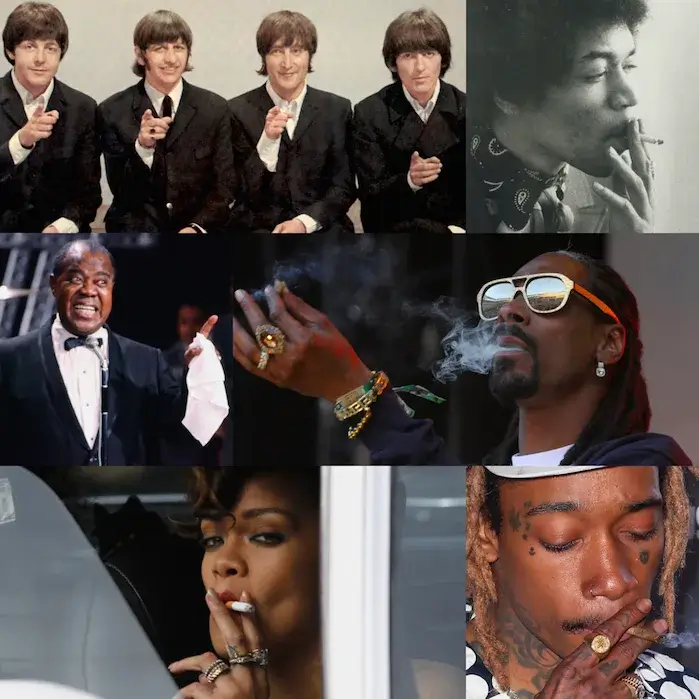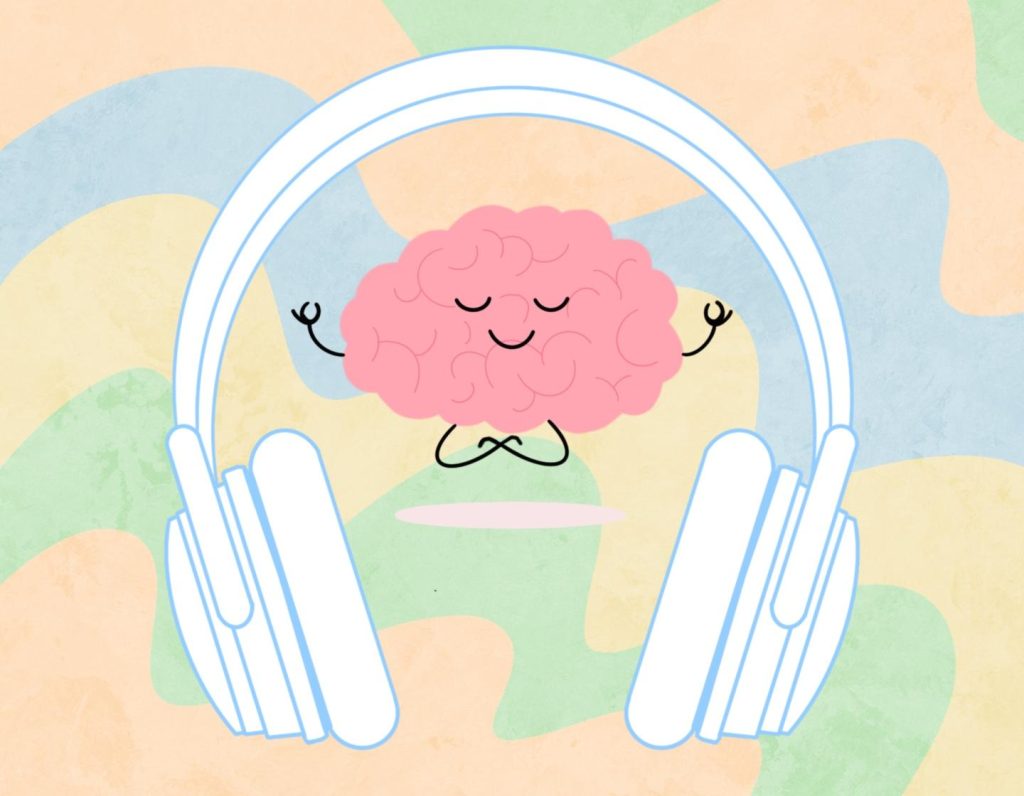Throughout history, cannabis and music have often been paired together. For ages musicians have referenced cannabis use in their songs, from the early ages of jazz with Louis Armstrong, to the 90’s reggae rock era of Sublime, to more modern hip-hop music like Snoop Dog and Wiz Khalifa. Many people believe that music is simply just associated with stoner culture, however it is much more complex than that. It has been observed in culture that individuals who partake in the use of cannabis have a much greater appreciation for music, but why?

Cannabis, Music and the Brain
The obvious starting point of this discussion should involve looking into how music affects the brain compared to how cannabis affects the brain. Michael Thaut, a professor of music and neurology at the University of Toronto who received his Masters and PhD in Music from Michigan State, focused his research career on the neural and psychophysical basis of music and rhythm perception. Through his research, Thaut discovered that sound is processed from the spinal cord to the cortex, meaning that the entire range of the central nervous system is activated when we listen to music. Interestingly enough, the most prominent receptors in the central nervous system are cannabinoid receptors. More specifically, CB1 receptors, the same receptors known for influencing mood and sensation when activated. Moreover, music and cannabis both trigger the mesolimbic dopamine system, also known as the nervous systems reward pathway. This system releases dopamine to chemically reinforce gratifying behavior. Music, with or without the influence of cannabis, enhances the activity in this area of the brain. So, it makes sense that people tend to enjoy music while sober, but seem to enjoy it more while under the influence of cannabis.
Through an EEG study used to measure electrical activity of the brain, it was shown that increased activity in the parietal area and the right hemisphere of the brain occurred after cannabis consumption. The parietal area of the brain is responsible for how we process information and the right hemisphere is related to creativity, imagination, and intuition. Increased activity in both these areas after cannabis consumption suggests that cannabis allows individuals to better process the sounds they are hearing as well as fully immerse themselves in the creative process of listening to and making music.

Cannabis and an Altered Perception of Reality
It is also important to understand how cannabis may alter our perception of reality and how that, in turn, affects our perception of music. Research done on cannabis and music perception was done by Jörg Fachner, Professor of Music, Health and the Brain, and Co-Director of the Cambridge Institute for Music Therapy Research. Through his research and the collective work of scientists before him, it was discovered that cannabis can change an individual’s perception of music by altering their perception of time, intensity of sound, and frequency of sound.
In “Out of Time? Music, Consciousness States and Neuropharmacological Mechanisms of an Altered Temporality”, Dr. Fachner describes that music is a “time process” and that cannabis has an ability to refocus its users attention to the current moment by changing their perception of time. While under the influence of cannabis, time seems to move more slowly and our short-term memory is disrupted, allowing us to focus on the moment rather than predict what’s coming next. These two things combined, along with the euphoria associated with the high, makes listening to music an almost ethereal experience. In another essay titled “The Space between the Notes–Research on Cannabis and Music Perception,” Dr. Faucher also points out that altered time perception may “temporarily enable an increased insight into the space between the notes, as if music is heard with a sort of time lens.” In more digestible terms, cannabis users may be able to hear more music in between the notes, making cannabis use intriguing to musicians and listeners.
In this same essay, Fachner references a study conducted in 1972 in which audiologists measured sound levels and sensitivity to the ears. This study found that cannabis enhanced individuals’ ability to hear sounds around 6000 Hz as well as made these sounds more pleasant to the ear. This suggests that a wider range of music is more enjoyable to the average cannabis user. It was also discussed that cannabis users showed a higher sensitivity to sound intensity and increased speech perception. This information suggests that individuals under the influence of cannabis are able to decipher words from background noises more easily than their sober counterparts.
All of this combined leads to an understanding that music sounds more unique and defined to individuals who are “stoned”. In an interview with Vice Magazine, Fachner explains, ““[Marijuana] works like a psycho-acoustic enhancer. That means you are more able to absorb, to focus and to have a broader spectrum [musically]. It doesn’t change the music; it doesn’t change the ear functioning. It changes the way we perceive music.” In that same interview, Zach Walsh, a professor of psychology at the University of British Columbia, explains that cannabis improves all things related to being present in the moment, allowing people to be more receptive to music.

Music just sounds better when you’re stoned
Considering how both cannabis and music affect our brains and how cannabis alters our perception of reality, it is clear why cannabis and music go together like sharp cheddar and cabernet sauvignon. Cannabis allows its users to expand their mind and their senses, leading to increased perception, pleasure and appreciation for music and the music making process.





